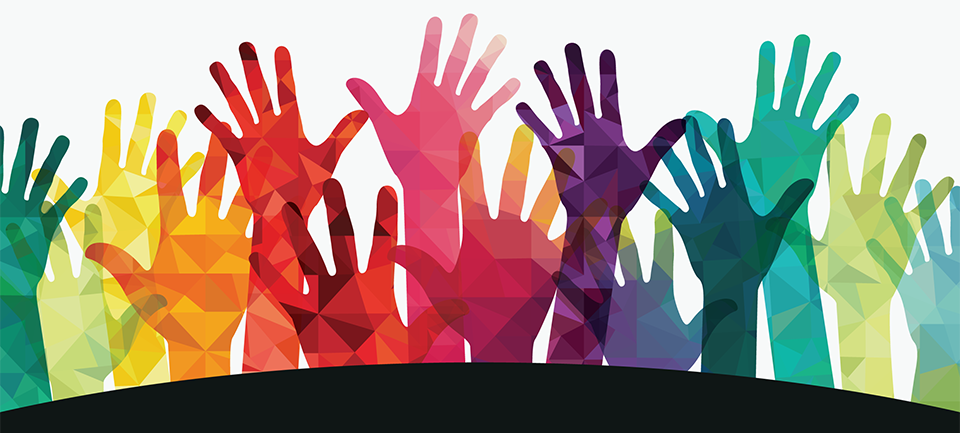Whether you read our blog, donate to the bail fund, or volunteer with us, thank you for supporting NCBF’s work to bail people out of jail and one day end pre-trial detention. There are a variety of ways to get involved and help us push for systemic change.
As you come alongside us in these efforts, here are ways to use your time, skills or money to put the “active” in your activism.
READ
| Abolitionist Futures (website) | While this organization consists of Britain- and Ireland-based community organizers and activists, their abolitionist reading list includes many pieces from the U.S. |
| Michelle Alexander’s The New Jim Crow: Mass
Incarceration in the Age of Colorblindness (updated 2020) (book) |
From the link at left: “[T]his book directly challenges the notion that the election of Barack Obama signals a new era of colorblindness. With dazzling candor, legal scholar Michelle Alexander argues that we have not ended racial caste in America; we have merely redesigned it.”
Fun fact: NCBF was born out of a book club that studied this book! |
| Courtney Ariel’s ”For Our White Friends Desiring to be Allies”
(2017) (article) |
Before asking a marginalized person how you can be a better ally, please read this piece. |
| Angela Y. Davis’ Are Prisons Obsolete? (2003) (book) | From the link at left: “With her characteristic brilliance, grace and radical audacity, Angela Y. Davis has put the case for the latest abolition movement in American life: the abolition of the prison.” |
| Ethan Hoffman and John A. McCoy’s Concrete Mama: Prison Profiles from Walla Walla (updated 2018) (book) | From the link at left: “Originally published in 1981, Concrete Mama revealed a previously unseen stark and complex world of life on the inside, for which it won the Washington State Book Award.”
Read an interview with McCoy here. |
| Mariame Kaba’s We Do This ‘Til We Free Us (2021) (book) | From the link at left: “What if ordinary people have the power to collectively free ourselves? In this timely collection of essays and interviews, Mariame Kaba reflects on the deep work of abolition and transformative political struggle.” |
| Amélie Lamont and by amélie. studio’s The Guide to Allyship (open-source guide) | A continuously updated guide to becoming a more thoughtful and effective ally. |
| Corinne Shutack’s 106 Things White People Can Do for Racial Justice (updated 2022) (listicle) | A long list of concrete ways to make a difference. |
WATCH
| “5 Tips For Being An Ally” (2014) (YouTube video) | Vlogger Franchesca Ramsey breaks down allyship in 3 ½ minutes. |
| 13th (2016) (documentary film, available on YouTube and Netflix) | Director Ava DuVernay investigates America’s anti-Black history, beginning at its founding and continuing through present-day via our nation’s disproportionately large African-American prison population. |
| The Innocence Files (2020) (documentary series, available on Netflix) | Eight personal stories of wrongful conviction cases that the Innocence Project and associated organizations have sought to overturn. |
| Re-Visions Of Abolition: From Critical Resistance To A New Way Of Life (updated 2021) (documentary film, available on the film’s website, Vimeo, and YouTube) | From the film’s website: “This film forwards an abolitionist analysis of the prison industrial complex by weaving together voices of Angela Y. Davis, Ruth Wilson Gilmore and formerly incarcerated women.” |
| Since I Been Down (2020) (documentary film, available on Amazon Prime) | In Washington State’s prisons, incarcerated men and women have led efforts to educate, organize, and heal. |
LISTEN
| Abolition is for Everybody: (2021-present) (podcast) | “Through friendly chats, and conversations with experts, our system-impacted co-hosts explore the history, futures, obstacles, and joys of [prison] abolition.” |
| Behind the Police (2020) (podcast miniseries) | “On this special podcast miniseries hosts Robert Evans and rap artist Propaganda (Jason Petty) draw a straight line from the darkest days of slavery, to the murder of George Floyd and the mass violence American police meted out to their citizens [during the summer of 2020].” |
| Ear Hustle: (2017-present) (podcast) | “The daily realities of life inside prison shared by those living it, and stories from the outside, post-incarceration.” |
| Justice in America (2018-2020) (podcast)(documentary film, | “Each episode explains a new criminal justice issue and features conversations with experts and advocates.” |
| One Million Experiments (2021-present) (podcast) | “Through longform interviews with movement workers across the world who have created community-based safety projects, 1ME expands our ideas about what keeps us safe, and celebrates the work already happening to build solutions that are grounded in transformation instead of punishment.” |
ACT
Find out which bills are currently active in the Washington State Legislature. Choose the “By Subject” option and select a subject from the drop-down menu. Try “Prisons and Prisoners,” “Correctional Facilities and Jails,” or “Criminal Offenders.”*
|
|
| Learn how to support a bill online with our how-to guide. Legislation is constantly in motion at our State Capitol, and several of those bills and resolutions will impact people in the criminal legal system—for good or ill. | |
| Email your legislator (or find out who they are). If you’re new to emailing your officials, get some tips before you hit send. | |
| Become a CourtWatch volunteer for NCBF! Come visit courtrooms with us (in person or virtually) and track important details of the cases. | |
| Sign up for NCBF’s email list where we’ll send out top-priority legislative updates. |
JOIN
Bail is only one way to enter the prison reform and abolition movements. Here are some other Washington-based organizations serving people who are in the system or potentially at risk of entering it:
| Books to Prisoners | “Books To Prisoners is a Seattle-based nonprofit organization whose mission is to foster a love of reading behind bars, encourage the pursuit of knowledge and self-empowerment, and break the cycle of recidivism.” |
| Community Passageways | “We create alternatives to incarceration for youth and young adults by rebuilding our communities through committed relationships centered on love, compassion, and consistency.” |
| Freedom Project | “Freedom Project works alongside the community to dismantle the institution of mass incarceration and heal its traumatic effects on individuals directly impacted by incarceration, on their loved ones, and on our community.” |
| Latino Development Organization | “The Latino Development Organization (LDO) serves the Monroe Correctional Complex, and works to achieve equity for all prisoners, with a focus on the Latinx community, by maximizing their educational, professional, and personal development opportunities.” |
| Seattle-Area Mutual Aid Groups | Follow the link to dive into Solid Ground’s comprehensive list of Seattle-local mutual aid groups. |
| WA Coalition to Abolish the Death Penalty | From the link at left: “Even in the wake of [2018’s] death penalty abolition in Washington, WCADP must stay active and engaged. Looking at the experience of other states, we know there may be attempts to bring the death penalty back in the years to come.” |
Prison populations often contain people who are experiencing mental health concerns, active substance use disorders, or who have a recurring history of homelessness. Here are a few organizations serving clients with one or more of these urgent needs:
| Chief Seattle Club | From the link at left: “Chief Seattle Club is a Native-led housing and human services agency. We believe that a world without homelessness is possible by leading with Native values.” |
| NAMI Seattle | From the link at left: “NAMI Seattle is the only organization in the Seattle area working specifically to fill the gaps in our local mental health system through education, referrals, and support.” |
| Recovery Café | From the link at left: “We provide a beautiful, safe, warm, drug and alcohol free space and loving community to anchor Members (our most closely-supported consumers) in the sustained recovery needed to gain and maintain access to housing, social and health services, healthy relationships, education and employment.” |
| Seattle/King County Coalition on Homelessness | From the link at left: “We mobilize our community to challenge systemic causes of homelessness and advocate for housing justice.” |
Don’t stop here! There’s no way we can list every Washington organization. Get in touch with the groups above for more information about their work, and google for other organizations that address causes you care about. Often after you get involved with just one group, the staff and volunteers will know of other partner organizations to guide you in your ongoing work.
*The Legislature uses language for people in the system that NCBF finds dehumanizing. Read our article about how word choice matters here.
Last Updated May 20, 2022

